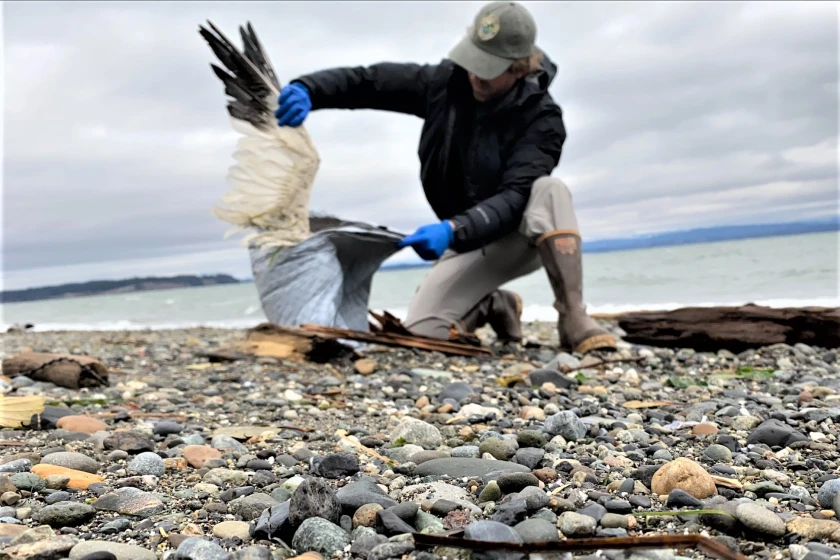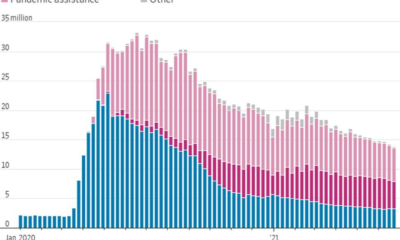Featured
Jenny Craig is reportedly winding down its weight-loss centers and warning of mass layoffs

Jenny Craig is reportedly shutting down some of its weight-loss centers and warning employees of mass layoffs amid upheaval in the industry from popular new prescription drugs like Ozempic.
Jenny Craig alerted employees to potential layoffs as it begins “winding down physical operations” and hunts for a buyer, according to NBC News. Jenny Craig has nearly 500 weight-loss centers in the United States and Canada.
The company, founded in 1983, did not disclose to how many weight loss centers will close or how many employees will be impacted.
“Like many other companies, we’re currently transitioning from a brick-and-mortar retail business to a customer-friendly, e-commerce driven model. We will have more details to share in the coming weeks as our plans are solidified,” a spokesperson for Jenny Craig said in a statement to .
Jenny Craig’s program provides nutritionally balanced menus, which include entrees, desserts and snacks, designed to help people lose weight. Bloomberg reported this week that the company has roughly $250 million of debt and is considering a bankruptcy filing if efforts to find a buyer for its assets fail.
It’s the latest sign of major changes in the weight-loss industry, brought on by popular new prescription diabetes drugs such as Wegovy, Ozempic, and Rybelsus.
These relatively new drugs work by stimulating the release of insulin, which helps lower blood sugar. They also slow the passage of food through the gut.
The FDA approved Ozempic for the management of diabetes in 2017 and Wegovy for weight loss in 2021.
Traditional weight-loss companies are scrambling to adjust. WeightWatchers is also getting into the prescription weight-loss drug business.
The company, now known as WW International, recently bought Sequence, a telehealth subscription service that connects patients with doctors who can prescribe weight-loss and diabetes drugs.
The $106 million acquisition of Sequence will give WW a foothold into the growing market for prescription drugs to manage weight loss.
Ozempic has gained popularity in part due to celebrities using it for weight loss.
But there are many concerns with using diabetes drugs for weight loss, including high costs and shortages that are making it harder for people with diabetes to obtain the drugs.
Featured
Minnesota tops nation in wild birds confirmed dead from bird flu

The deadly bird disease is back this spring, and, in fact, never left over the winter.
Highly pathogenic avian influenza is back killing domestic poultry and wild birds in Minnesota again this spring as huge flocks of migratory birds carry it north for another season.
But, in fact, the deadly bird disease never left the state, even over our long winter, with birds dying in December and January and some new research showing the killer flu virus may survive even in cold Minnesota lake water — with no host bird — during the winter.
That’s the update from wildlife biologists as the great spring migration descends on Minnesota, as the snow line recedes north and ice on lakes and rivers begins to let loose.
Since the disease was first reported in Minnesota just over a year ago, some 566 birds have been tested and confirmed carrying the H5N1 strain of bird flu that’s been expanding worldwide since 2020, according to data from the U.S. Department of Agriculture. Wisconsin has had 211 confirmed cases and North Dakota 310 as of April 11.
Nationally, more than 6,500 wild birds have been confirmed dead from the virus over the past year, some from all 49 continental states, although wildlife experts say that’s likely a gross under counting of the total number, most of which die and are never found by people.
Featured
Outdoors notebook: Hoeven, Heinrich introduce CWD Research and Management Act

Bipartisan legislation would empower state, tribal governments to address and prevent CWD outbreaks.
Bipartisan legislation introduced Thursday in the U.S. Senate aims to address the growing problem of chronic wasting disease in wild populations of deer, elk and moose.
Sens. John Hoeven, R-N.D., and Martin Heinrich, D-N.M., introduced the Chronic Wasting Disease Research and Management Act. The bill is a Senate companion to legislation the House of Representatives passed last December with an overwhelming 393-33 vote.
The bill would authorize $70 million per year, split evenly to support both the research and management of CWD. The U.S. Department of Agriculture would administer the funds through cooperative agreements with state and tribal wildlife agencies and agriculture departments.
The legislation also includes an authorization for USDA and state and tribal agencies to develop educational materials to inform the public on CWD and directs USDA to review its herd certification program within 18 months, according to a news release from Hoeven’s office.
“CWD is a growing threat to both wildlife and livestock, impacting sportsmen, ranchers and the local ecology of regions across the U.S.,” Hoeven said. “Our legislation would empower state and tribal governments to better manage and prevent outbreaks of this deadly disease, while also advancing new methods for detecting CWD and limiting its spread.
Featured
If ChatGPT designed a rocket — would it get to space?

Artificial intelligence has become a talking point more than usual lately. From text churned out by ChatGPT to the artistic renderings of Midjourney, people have been taking notice of new, bot-produced creative works. But how does this artificial intelligence software fare when facts are at stake and getting information right is essential?
Geoff Brumfiel, NPR science correspondent and self-proclaimed space nerd, wanted to find out. So he asked ChatGPT about a scientific field that has long relied on computer programming — rocket science. First on his agenda: “What’s the most important equation for building a rocket?” (Hint: there’s one equation, Tsiolkovsky’s rocket equation, that scientists say is most critical and fundamental to the field.)
At a cursory glance, ChatGPT’s answer looked pretty impressive … but running that answer by an actual rocket scientist quickly scrubbed away the awe.
“It would not work. It’s just missing too many variables,” said rocket scientist and engineer Tiera Fletcher.
As Geoff pressed on in his hunt for aeronautical facts, he got more wrong answers. He asked one image-generating AI program, Midjourney, for rocket schematics. Its results are beautiful … and incapable of spaceflight.
What it will take for AI to be fully accurate, to fact-check itself as it produces content, is an open question researchers will likely ponder for quite some time.
Listen to Short Wave on Spotify, Apple Podcasts and Google Podcasts.
Want to hear more about other advances in the tech space? Email us at shortwave@npr.org!
This episode was produced by Margaret Cirino, edited by our managing producer Rebecca Ramirez, and fact checked by Anil Oza. Our audio engineer was Jay Czys.
-

 Business3 years ago
Business3 years agoHyundai Leads Industry in U.S. News & World Report 2023 Best Cars for the Money Awards
-

 Innovation3 years ago
Innovation3 years agoJay-S ventures into the urban genre with “Bailar en la Playa” his latest production
-

 Business3 years ago
Business3 years agoThree Questions Small Business Owners Should Ask In Creating A Workplace Culture – Forbes
-

 Business3 years ago
Business3 years agoA Fintech Makes It Easy For Small Businesses To Offer 401(k) Retirement Benefits – Forbes
-

 Business3 years ago
Business3 years agoBritain’s Small Businesses See Better Times Ahead But Is Their Optimism Justified? – Forbes
-

 Money3 years ago
Money3 years agoCharlie Crist leads Democratic gubernatorial field again in money chase – Florida Politics
-

 Money3 years ago
Money3 years agoTesting New Tools for Horizon Worlds Creators To Earn Money
-

 Business3 years ago
Business3 years agoSmall Business Labor Shortage – Forbes
